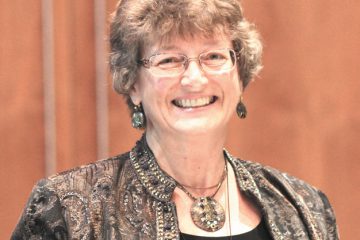Sunflowers and silence

Jew in the Christian World By Candace R. Kwiatek, The Dayton Jewish Observer
Imprisoned in Lemberg concentration camp, a young Simon Wiesenthal is summoned to the bedside of a dying Nazi soldier who asks his forgiveness for the brutal massacre of an entire village of Jews.
“In his confession there was true repentance, even though he did not admit it in so many words,” writes Wiesenthal in the gripping opening of his memoir, The Sunflower. “Ought I to have forgiven him? Was my silence at the bedside of the dying Nazi right or wrong?”
In the symposium that comprises the second half of the book, the responses of Christian and Jewish scholars to the moral dilemma Wiesenthal poses highlight some theological contrasts.
Edward Flannery, a Catholic priest, comments, “It is a cardinal principle of Judeo-Christian ethics that forgiveness must always be granted to the sincerely repentant.”
Similarly, author Christopher Hollis notes the soldier makes no excuses, confesses his crime, and sincerely repents, concluding “…We are under obligation to forgive our neighbor even though he has offended against us 70 times seven.”
By contrast, scholar and author Susannah Heschel stands with Wiesenthal: “In Judaism, where forgiveness requires both atonement and restitution, there are two sins that can never be forgiven: murder and destroying someone’s reputation…no matter how much atonement is expressed for these crimes, no restitution is possible, and no forgiveness can follow.”
Lecturer Dennis Prager adds, “…a person who hurts another person must ask forgiveness from his victim and…only the victim can forgive him.”

Finally, Israeli Supreme Court Justice Moshe Bejski points out, “Even in normal criminology and penology only true regret accompanied by reformed behavior can be considered a justification for lightening a sentence…No matter what, regret (alone) never pardons crimes…”
These responses about repentance and forgiveness are strongly linked to the different religious traditions about the origin and nature of sin.
On one hand, Christianity and Judaism both describe sin as missing the mark: transgression of God’s law and rebellion against God, which includes harming others.
But Christianity sees humans as sinful by nature, as descendants of the disobedient Adam and Eve, and naturally inclined toward evil. Everyone sins, thus everyone will be damned.
This doctrine of sin is central to Christianity’s message of personal redemption: by accepting or returning one’s focus to Jesus as savior, the individual’s inherent and self-inflicted “sin-debt” is forgiven.
As C.S. Lewis explains, “repentance is not something God demands of you before he will take you back…it is simply a description…Instead of going away from God, or ignoring him, you turn around…and give him his rightful place in your life.”
In Christian tradition, unqualified forgiveness is a way of imitating God and acknowledging the sinner’s return to God’s path, although absolute forgiveness ultimately comes from God.
By contrast, Judaism sees humans as inherently neutral with both good and evil inclinations and free will, which they sometimes misuse, Rabbi Joseph Telushkin writes.
According to the rabbis of the Talmud, Telushkin writes in You Shall Be Holy, God created repentance “to provide humankind with a way to atone for and correct wrongful behavior,” because, “even good people would be overwhelmed by guilt, both toward God, Whose laws they had broken and toward those whom they had hurt.”
Rather than a doctrine of sin and redemption, Judaism’s central message is one of personal character.
Repentance — teshuvah — is a multi-step process of atonement by verbally acknowledging and taking personal responsibility for sinful behavior toward others and toward God, making restitution and repairing relationships by asking for forgiveness, and resolving to change one’s behavior and avoid those sins in the future.
The process of teshuvah is not targeted toward salvation, but rather toward the sinner’s return to being and behaving “in the image of God.”
For Judaism, “the primary issue in repentance is ethical, rather than theological or ritual transformation,” Telushkin concludes.
Teshuvah is a life-long worldly enterprise, punctuated by an annual 40-day season of repentance beginning with the first of the month of Elul and culminating with Yom Kippur.
In Judaism, the person who is wronged also has obligations to complete the cycle of repentance.
“(You must) go out of your way to offer those who have hurt you the opportunity to repent,” Telushkin writes, by returning phone calls, greeting them in public, and not avoiding their attempts to reconcile.
Just as you expect God to forgive, you should forgive those who truly repent, even multiple times.
Wholehearted forgiveness extends even beyond the moment of reconciliation, by not belaboring how much hurt was caused, by not reminding the former offender of their misdeed, by resuming the relationship, and even by offering a prayer on behalf of the offender. Teshuvah is a two-way street.
So how would you have answered Wiesenthal? Should he have forgiven the Nazi soldier or not? More importantly, why?
Literature to share
All Who Go Do Not Return by Shulem Deen: Raised as a member of an insular Chasidic sect in the United States, Deen traces his journey from the hidden sphere of the Skverer Chasidim into the outside world. His curiosity and religious exploration lead to family conflict, deception, and eventually ostracism. This journey is personal, but the challenging issues and insights are universal.
One Good Deed by Terri Fields: A picture-book version of “pay it forward,” this colorful story illustrates how one thoughtful deed can transform an entire community. With repetition that lends itself to interactive reading, each double-page invites the young reader to think about others and imagine a kind or generous deed to do, an activity that can carry over into everyday life.
To read the complete August 2015 Dayton Jewish Observer, click here.



